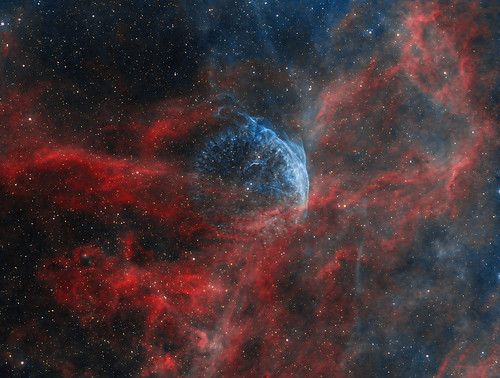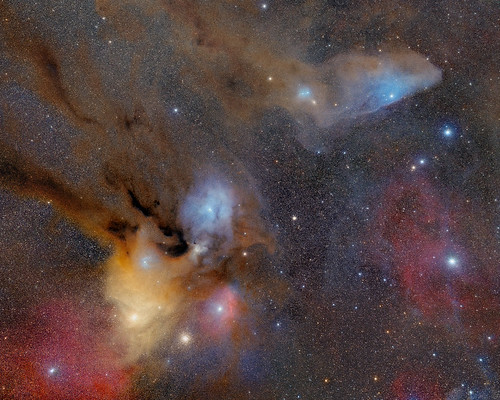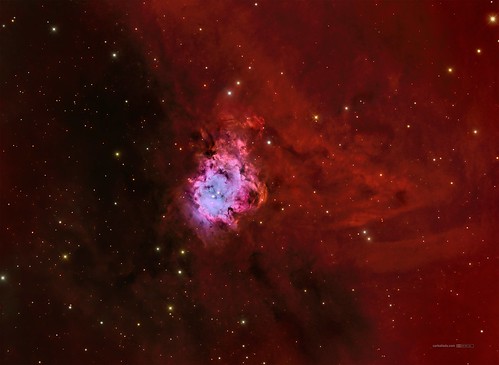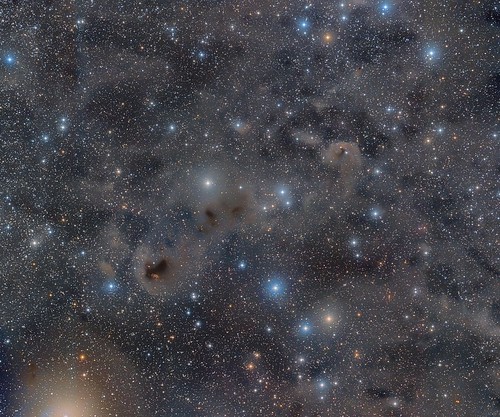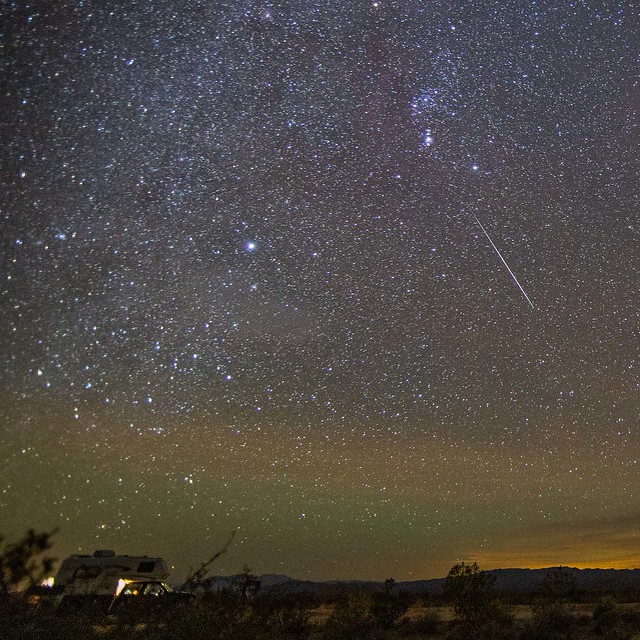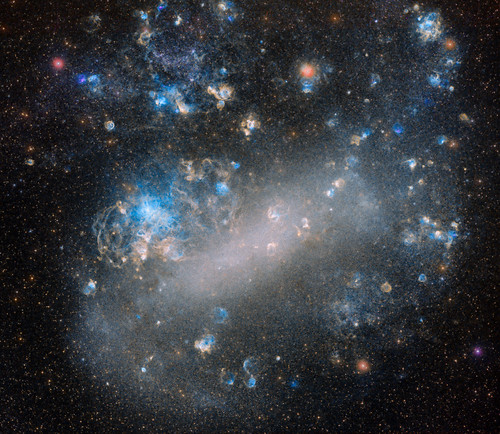http://www.coelum.com/photo-coelum/phot ... imo-quarto
Hi everybody,
I have been thinking for a long time about this photographic project which is not easy finally in November thanks to the high pressure on Italy I was able to photograph the Moon.
This work is the result of a composition of a considerable number of data collected on two different days.
The images of the ashy light (sunlight reflected from the Earth towards the Moon) were taken on November 18, 2020, while the luminance and relative color data at the First Quarter were obtained four days later (22-11-2020).
For the ashy light, 53 images were added (EOS 550D), for the First Quarter, the luminance is a mosaic of 11 panels (ASI290MM + R filter), while the RGB data are the result of the sum of 77 images with Canon 550D.
Due to the lunar libration, obviously the two resulting images were not perfectly superimposable.
To solve the mystery I experimented with De-rotation technique of the powerful WinJUPOS software, a function created for the planets of the Solar System, but it can also be used with some precautions for this type of processing.
See you soon. Clear skies
Vincenzo Mirabella
Observer= Vincenzo Mirabella
Location= Ardea(RM) ITALY
________________________________________________________
Object=First Quarter Moon (LUMINANCE)
Mosaic= 11 panels
Scope=Newton AM200 D:200 F:1200 f6 DIY self-made with optics GSO
Camera=ZWO ASI290MM
Filter=R Astronomik
Date=20201122
Mid(UT)=172829.619
Duration=90.011s
Date_format=yyyyMMdd
Time_format=HHmmss
Frames captured=1198
File type=SER
Bit depth=8bit
ROI=1936x1096
FPS (avg.)=13
Shutter=3.960ms
Gain=80 (13%)
Gamma=36
Histogramm=83%
Limit=90 Seconds
Sensor temperature=23.2°C
------------------------------------------------------------
Object=First Quarter Moon (RGB color)
Stack=77 shots
Scope= Newton "AM200" D:200 F:1200 f6 DIY self-made with optics GSO
Camera=Canon EOS 550D 18Mp
Focal Length: 1200mm
Date_format=yyyyMMdd
Date=20201122
Time_format=HHmm
Mid(UT)=1745
Exposure=1/320 sec.
ISO=100
File type=CR2
ROI=5184x3456
Color space=sRGB
________________________________________________________
Object= 3 Days Moon (Earthshine)
Stack=53 shots
Scope= Newton AM200 D:200 F:1200 f6 DIY self-made with optics GSO
Camera=Canon EOS 550D 18Mp
Focal Length: 1200mm
Date_format=yyyyMMdd
Date=20201118
Time_format=HHmm
Mid(UT)=1750
Exposure=0.6 sec.
ISO=800
File type=CR2
ROI=5184x3456
Color space=sRGB
